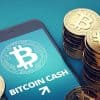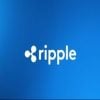- The advent of the metaverse concept has triggered a spike in the popularity of digital land. But are these assets worth their hype?
Digital real estate has taken off, and it’s more popular than ever. You can become a holder of digital land, regarded as one of the most important features of the metaverse and a major step toward Web3. Its owners can use it for various purposes, some of which we’ll cover in the following article.
Many platforms already offer digital land for sale, each with its own take in terms of what you get if you complete the purchase. Following is an overview of the most sought-after options, along with a description of their respective ecosystems.
Looking Glass
Looking Glass is a Vancouver-based Web3 platform specializing in NFT architecture, P2E tokenization, and the creation of immersive metaverse environments. The platform conducted a digital land sale that started on April 16, 2022, with each parcel containing four acres of digital land. The sale was took place via Looking Glass’ flagship studio, House of Kibaa.
Each land is called a Pocket Dimension in HoK, and owners have the opportunity to use it to host virtual events, rent it, and mine resources. Moreover, they can add other digital assets and custom structures to it. Pocket Dimensions are blockchain agnostic, meaning they have a huge NFT compatibility. Furthermore, it has an in-depth avatar system, host system, NPC, and peer-to-peer marketplace. High-definition land is part of the detailed ecosystem supporting HoK and providing a one-of-a-kind experience.
CEEK
CEEK delivers cutting-edge AR, VR, and social experiences, ultimately empowering creators by giving them the necessary tools for generating new revenue streams for digital art. The platform has helped various creators, artists, and athletes to deliver great content and engage their fans. Landowners can create virtual worlds and connect them to the real-world economy.
CEEK announced it would also provide low-code and no-code opportunities to help landowners develop their properties. Land ownership plays an essential role in CEEK’s ecosystem, as it enables hosting events, games, airdrops, and more.
Sandbox
The Sandbox metaverse is one of the best-established ecosystems, given the use of the various types of Ethereum tokens in it. The LAND token allows users to buy virtual land in Sandbox. They can then utilize the LAND to create, control, and sell gaming experiences through a fungible token called SAND (the utility token of Sandbox).
There are several other types of tokens in Sandbox, all with the goal of helping creators develop gaming experiences to populate their land. All land tokens are based on Ethereum and follow the ERC-721 standard.
Decentraland
Decentraland is also one of the key players in the crypto sphere, with digital land as the central part of its operations. It allows acquiring land as part of its ecosystem, with owners receiving their exact coordinates, much like in all other projects described in this article. Decentraland is also based on Ethereum and uses its smart contracts to power the ecosystem.
A total of 90,601 plots of land will be up for sale. This number is fixed for many similar projects, meaning no additional parcels can be added. In addition to 16×16 meter parcels, the virtual metaverse also features roads and plazas. Landowners can host events in the virtual world and populate their lands with interesting creations. Moreover, users can own other in-game assets, purchase wearables, and even buy digital NFT art via Decentraland.
Final Thoughts
As you can see, holding digital land can take many forms. In some cases, it’s mainly made for fun, like Sandbox. Yet, Decentraland has sold parcels to some big brands, just like CEEK offered land to famous artists and creators.
Owning digital land has advantages, and it’s up to you to decide which platform will be most suitable for your needs. Even if you don’t intend to use it, buying virtual land could become a lucrative move, as their prices could go up in the future. After all, digital land is on the blockchain, meaning it cannot be tampered with and changed in any way. Therefore, if the concept of metaverse becomes widespread, prices of digital real estate could go up, as many people would then aim to become digital land owners.





